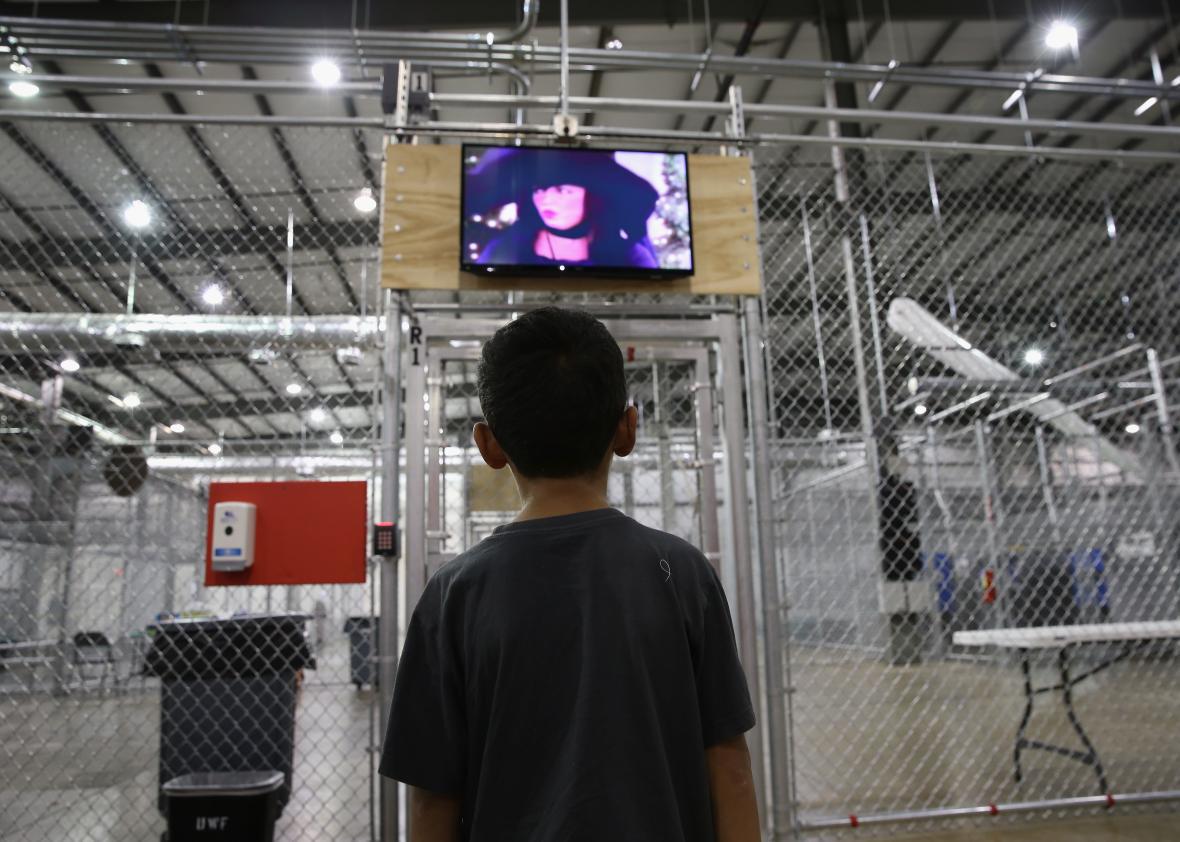Texas may soon classify two immigration detention centers as “child-care facilities” to circumvent a judge’s 2015 ruling that ordered them shut down. A new rule submitted to the state’s Health and Human Services Commission would create a new category of child-care license that would keep family detention centers open in Karnes City and Dilley that currently house migrant women and their children caught crossing the Mexican border.
The rule has been in the works since September, as the Texas Department of Family and Protective Services grappled with a decision from federal Judge Dolly Gee that came down in July. Gee ruled that the country’s three family detention centers (the third, which is currently being shut down, is in Pennsylvania) release the children they were hold in “deplorable conditions” that “failed to meet even the minimal standard” for a safe and clean environment for children.
The subpar conditions, she wrote, violated 1997’s Flores v. Meese settlement agreement, a class action suit that set standards for how unaccompanied migrant children stopped at the border should be treated—namely, that they must be held in licensed facilities. Gee’s decision applied that standard to children apprehended with their parents, too. At the time, there were about 1,400 children and parents in the country’s three family detention centers.
If the Texas HHC approves the rule, the detention centers could be licensed as child-care facilities even if they don’t comply with all the regulations other child-care centers must follow, such as keeping children from different families segregated by gender in their living and sleeping spaces.
Last May, 136 members of Congress signed a letter asking Department of Homeland Security head Jeh Johnson to release children from these facilities, citing stories of sexual assault, physical violence, kidnapping, and sex trafficking. Advocates testified against the practice at a December hearing at at the Texas Department of Family and Protective Services’ (DFPS) headquarters, urging officials to reconsider the human-rights implications of holding children in shabby, prison-like environments. According to a DFPS spokesman, the federal government asked Texas to consider adding the new child-care licensing category instead of shutting the centers down, and Texas complied.
